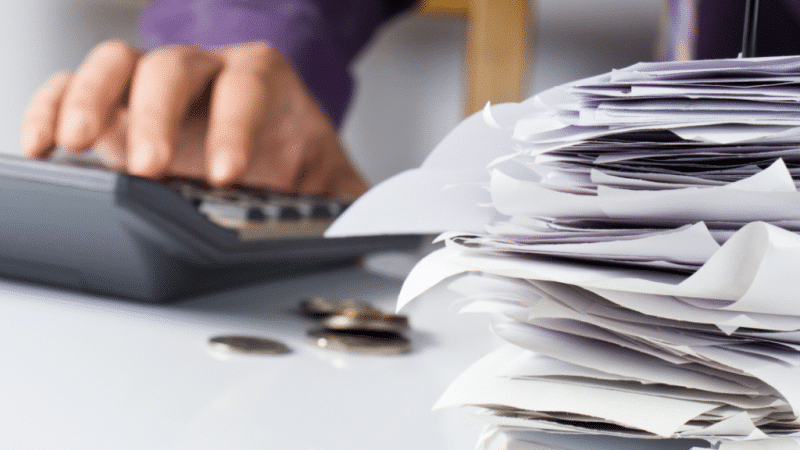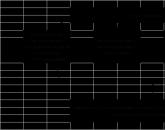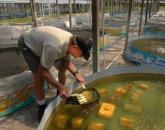If you have no income, do you have to pay taxes?
At the time of opening their business, entrepreneurs register with the tax authorities and begin to transfer taxes and contributions to the state, determined by the taxation scheme they have chosen. For many entrepreneurs, a situation arises when, for various reasons, it is necessary to stop their activities for a long time. When an entrepreneur does not work, he does not receive income. This raises reasonable questions: “IP does not operate, what taxes to pay? If an individual entrepreneur has no income, do I need to pay taxes? Even in the event of a temporary cessation of activity, that is, if the entrepreneur plans to resume business, say, for several months or years?”
The need to transfer taxes depends on the taxation system chosen by the individual entrepreneur. In some taxation systems, certain types of taxes are paid even in the absence of activity. But the filing of tax returns with the IFTS is mandatory, in any case, whether the activity is carried out or not.
The decisive conditions for the payment of taxes are: the factor due to which the activity is suspended, and the amount of time allotted for such a break. In some cases, transfers can be avoided. This article will consider all types of payments, analyze the need to pay them to the state: “Do I need to pay tax if the individual entrepreneur does not operate?”
Pension payments
For all individual entrepreneurs, without exception, with any taxation system, fixed payments to the pension fund of the Russian Federation are mandatory. They are also called "payments for themselves." The legislation establishes the amount of such payments, which is indexed annually. They begin to list them from the moment the IP registered, and end after the liquidation of the IP.
The amount of payments in the PF is the same for any entrepreneur. The type of activity and interruptions associated with it also do not affect these payments. In the event of a temporary stoppage of activities, the payment will still need to be transferred.
The amount of contributions to the pension fund for individual entrepreneurs has a clear dependence on the amount of their income for the year. This amount is calculated based on the minimum wage established by law at the beginning of the current year, in 2017 it is equal to 7,500 rubles. PF contributions account for 26% of the annual minimum wage. In 2017, if the income for the year is no more than 300 thousand rubles, then the amount of the pension contribution will be 23,400 rubles. If the income of an individual entrepreneur for the year overcomes the mark of 300 thousand rubles, then 1% of the excess amount is also paid, but not more than 163,800 rubles. Terms of payment of contributions: for the main payment - no later than 31.12.2017, for the additional - until 01.04.2018.

Avoiding the transfer of pension contributions will not work completely. But for the period of suspension of activities in a number of situations listed below, this is possible. These options are:
- Call service. The following documents confirm the right to remove the obligation to pay contributions: a military ID with service marks, a certificate from the military commissariat, a work book, tax returns confirming that there is no commercial activity. All this is provided to the pension inspector in the Pension Fund.
- Caring for a child up to 1.5 years. Either parent has the right to take care of a child: either the mother or the father. If the family has 2 or more children under 1.5 years old, then the period of parental leave is extended until each of them reaches this age. Supporting documents can be birth certificates of children, certificates from the housing department on family composition, certificates from the Social Insurance Fund or social protection authorities, tax returns confirming that there is no activity.
- Caring for a disabled person of the 1st group, a disabled child or a person who has reached the age of 80. The pension inspector is provided with the following exemption documents: certificates of disability, birth certificates of persons being cared for, certificates from the housing department on family composition and tax returns confirming that there is no commercial activity.
Popular
- Bull and bear on the stock exchange: the "animal" face of the stock market
- Stages of opening a private dental office
- How to open your store - step by step instructions for beginners + real life example
- Sales revenue - formula and concepts
- What is the difference between margin and profit - calculation formulas
- Advice 1: How to switch from a simplified system to a system with VAT payment
- The concept of "car depreciation" - what is it?
- Business of yesterday: 7 main problems of modern realtors :: Opinions :: RBC Real Estate
- What is the difference between public and non-public types of joint-stock companies, partnerships and cooperatives?
- Simple business - private household plots (personal subsidiary plots)




